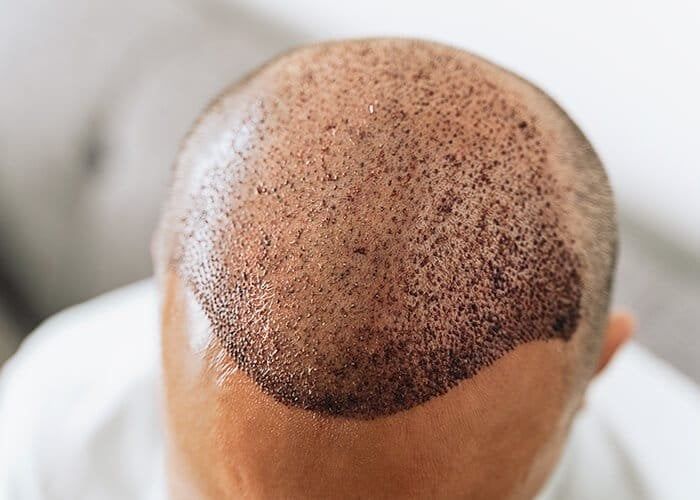

Hair transplantation is a popular cosmetic procedure that involves moving hair from one part of the body to another. It is commonly used to treat male pattern baldness, but can also be used to restore hair in women and for other types of hair loss. One of the most common questions people have about hair transplantation is whether the transplanted hair is permanent. In this article, we will explore the answer to this question in more detail.
Hair transplantation involves removing healthy hair follicles from a donor area on the scalp, typically at the back or sides of the head, and transplanting them to the bald or thinning areas on the scalp. The transplanted hair follicles continue to grow hair in their new location, which gives the appearance of natural hair growth.
The success of hair transplantation depends on several factors, including the skill of the surgeon, the quality of the hair follicles, and the patient's overall health. In general, hair transplantation is a safe and effective procedure that can provide long-lasting results.
However, it is important to note that the transplanted hair is not completely permanent. Like all hair on the scalp, the transplanted hair is subject to the effects of ageing and other factors that can cause hair loss over time.
The hair that is transplanted during a hair transplantation procedure is taken from the donor area of the scalp, which is typically resistant to hair loss. This means that the transplanted hair is less likely to fall out than the hair in other areas of the scalp that are more susceptible to hair loss.
However, even the hair in the donor area can be affected by certain factors that can cause hair loss over time. These factors can include genetics, hormonal changes, and other health conditions. In addition, the transplanted hair can be affected by other factors that can cause hair loss, such as stress, medications, and poor nutrition. If these factors are not addressed, they can cause the transplanted hair to fall out, just like the natural hair on the scalp.
That being said, here are some of the factors that can affect the longevity of transplanted hair. The success of the hair transplantation procedure depends on the skill and experience of the surgeon performing the procedure. A skilled surgeon can ensure that the transplanted hair follicles are inserted at the correct depth and angle to promote healthy growth and minimize the risk of damage or loss. In addition, proper post-operative care is essential to ensure the success of the procedure and the longevity of the transplanted hair.
Another factor that can affect the longevity of transplanted hair is the patient's age. As we age, our hair follicles become less active and produce thinner, weaker hair. This means that even if the transplanted hair is genetically resistant to balding, it may still be affected by the natural ageing process. This is why it is important for patients to have realistic expectations about the results of their hair transplantation procedure and to work closely with their surgeon to develop a plan for maintaining the health and longevity of their transplanted hair.
It is also worth noting that while transplanted hair is generally considered to be permanent, it is not immune to damage or loss from other factors. For example, transplanted hair follicles can be damaged by trauma or exposure to certain chemicals, which can lead to hair loss. In addition, certain medical conditions or medications can also cause hair loss, which can affect both transplanted and non-transplanted hair.
So while hair transplantation can provide long-lasting results, it is important to understand that the transplanted hair is not completely permanent. Patients who undergo hair transplantation will need to take steps to protect their hair and maintain its health to ensure that it continues to grow and thrive over time.
To protect the transplanted hair and prevent further hair loss, patients may be advised to take certain medications or supplements, such as minoxidil or finasteride. They may also be advised to make lifestyle changes, such as reducing stress and improving their diet and exercise habits.
Regular follow-up appointments with a dermatologist or hair restoration specialist are also important to monitor the growth and health of the transplanted hair. If any issues arise, such as thinning or hair loss, they can be addressed promptly to prevent further damage.
In conclusion, hair transplantation is a safe and effective procedure that can provide long-lasting results for
people with hair loss. However, it is important to understand that transplanted hair is not completely permanent and
can be affected by various factors that can cause hair loss over time. Patients who undergo hair transplantation
will need to take steps to protect and maintain their transplanted hair to ensure that it continues to grow and
thrive over the long term. If you live in Kenya and are in need of a hair transplant, you have a reason to be happy.
Avané clinic, Nairobi offers quality ad affordable hair transplant services for all. You can visit
us at the Yaya Center in Nairobi. Moreover, you can contact us
to book your hair transplant appointment or make inquiries.